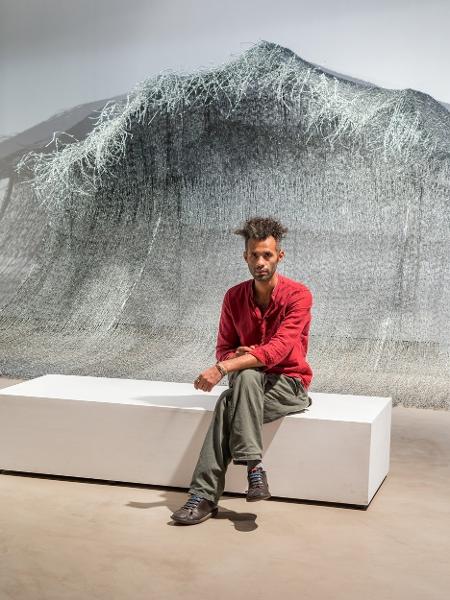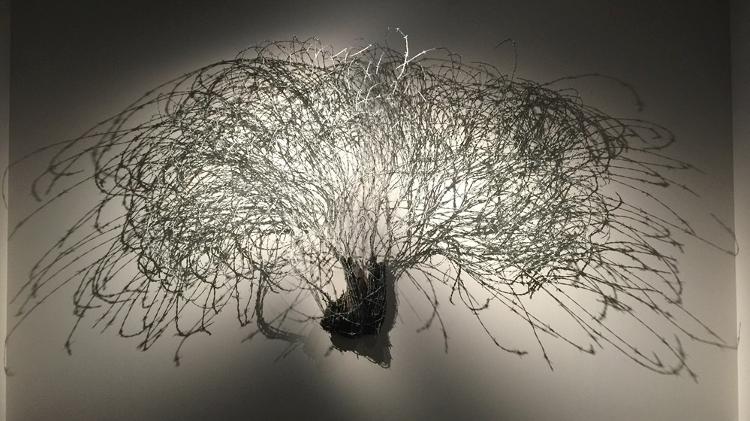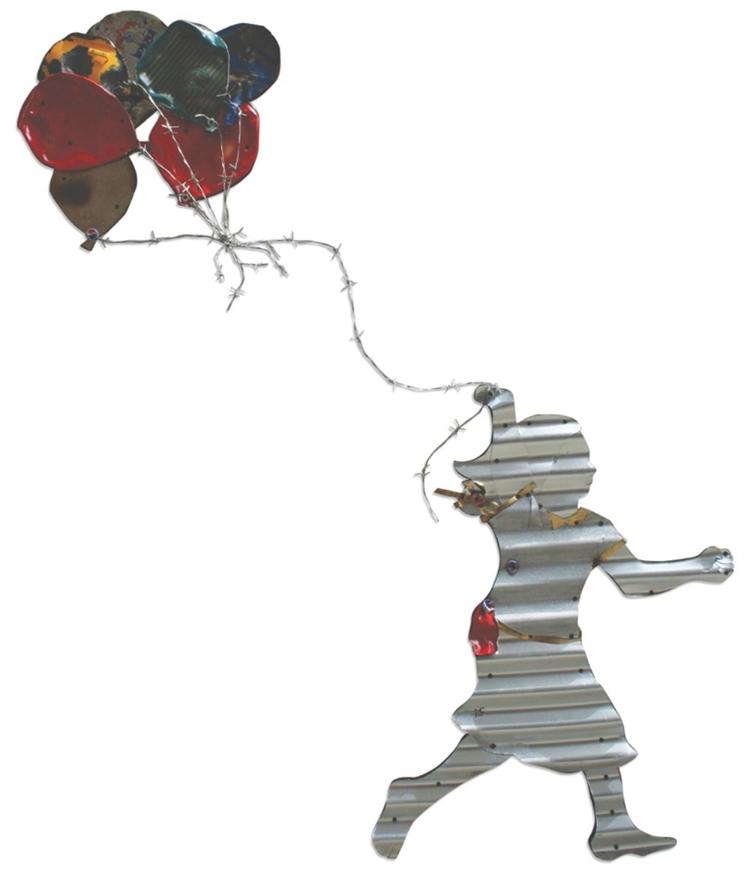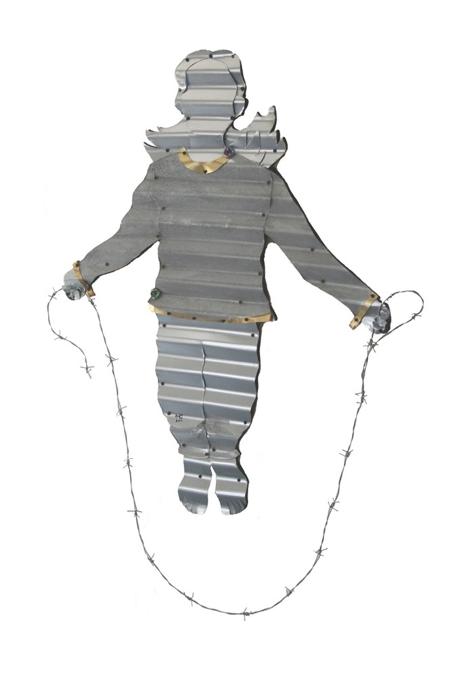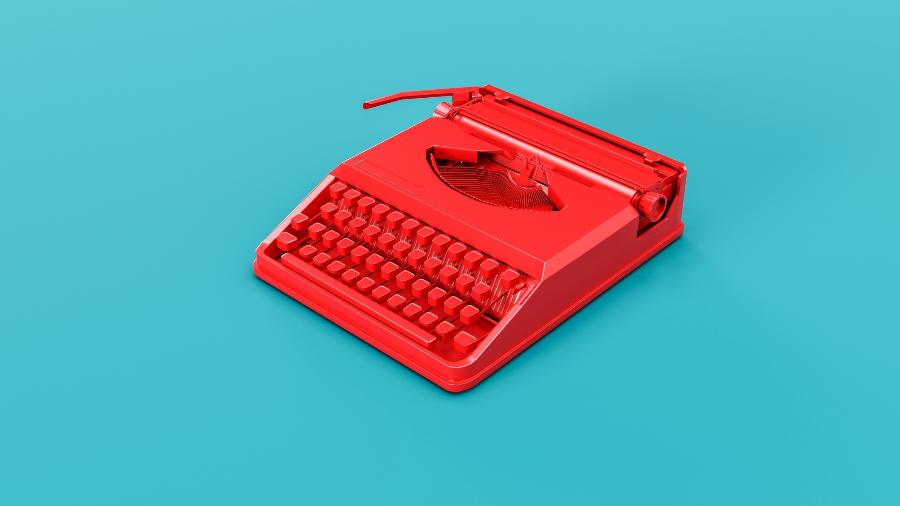Opinion
One must go beyond death - about the life and work of a Palestinian artist
Julian Fuks
Columnist of Ecoa
28/10/2023 04h15
Abdul Rahman KatananiImage: Disclosure
It is necessary to go beyond death, to go beyond the unspeakable pain. It is necessary not to admit a people only of victims, of bodies silenced under the rubble, of civilians counted in the statistics. One must not make imaginable the decimation that some desire and others execrate. It is necessary to conceive this people in their permanence, their resistance, to understand that for decades they have survived persecution, that they are active and present and will continue to exist against all violence. One must imagine their artists, dreamers and poets, imagine them and then discover them restless and alive.
I met Abdul Rahman Katanani at an artistic residence in Paris. He was a tall, slim man, at that time he had a wide smile and festive eyes. Nothing in his countenance revealed the pain of his origin, his eternal condition as a refugee, son of refugees, grandson of refugees. Nothing in the agility of his body indicated his insurmountable limit: that, being Palestinian, he had never entered Palestinian lands, had never stepped on the ground of his ancestors, never seen family olive trees uprooted decades ago by hostile soldiers.
On a slightly cold afternoon, in a land that did not belong to him or me, I heard the story of his life that receded far beyond him. He learned of his grandfather twice sentenced to death for fighting the invaders of the region, the once friendly subjects who were beginning to destroy Palestinian villages. I learned of the departure of this grandfather already in the first diaspora, in 1948, wanting to believe that he would be away only for a week, as others assured. His grandfather suspected, but had no way of knowing that he and succeeding generations would be banished from their soil for more than 75 years, counting still open.
That man standing before me was already a survivor from before he was born. His father was from Sabra, his mother from Chatila, the two refugee camps in Lebanon surrounded by the Israeli army and devastated by the Maronite militia in the
historic massacre of 1982. The parents were married a few days after the carnage, Abdul was born the following year. He lived almost all his life in a single camp in Sabra, inside a makeshift hospital as a Palestinian refuge, with no citizenship, no passport, prevented from leaving anywhere. His sensitive and impressive art, at once blunt and lyrical, was his license to exist beyond those confines.
By Abdul Rahman KatananiImage: Disclosure
Pessimism of reason
The man who now speaks to me through a screen that crosses the ocean has sad eyes. I stopped seeing the images of the children dying in Gaza, he says, it was like a morphine that entered my head and did not let me get away from the scenes, and wouldn't let me think of anything else. He feels paralyzed since the war began, separated from himself and his works, and feels like a nightmare that repeats itself again, the bombs that are falling today are the same that have been falling for a long time, in a continuous genocide.
It is the ideas that kill first, he says, the acts come next. And for the past fifty years there has been systematic criminalization and dehumanization of the Palestinian people, a way to convince extremists that those others do not deserve life, they have no right to a country. There was a peace process going on, and then they preferred to take the word peace and stick to the process, who has become the process of ethnic cleansing of Palestinians — I hear the extreme gravity with which Katanani pronounces these words, which in his voice do not sound repeated.
By Abdul Rahman KatananiImage: Disclosure
I don't understand what they want, he wonders again and again about the Israeli government, I don't want to understand what they hope to achieve with their violence, with its culture of prisons and endless walls. How do you expect people not to rise up and revolt? They are harassed in their own lands, without the minimum rights. The only resistance they have left is that of Hamas and Hezbollah, but it is an unacceptable, violent resistance like the one that gives rise to it. We are seeing the clash between two extreme right-wingers, and as long as these are the protagonists, there will be no way out.
This violence is not my identity, he leans back a little, his voice becomes softer, this is not Palestinian identity. My conception of identity is linked to the struggle of
OLP in the sixties. The Palestinian conflict is a human conflict. We don't want to kill people, we want to live with each other, live in a single country where everyone has the same rights. I have no beliefs, I am not a religious person, I do not believe in any god. But I believe in a land with open and permeable borders, where everyone can go wherever they want.
Where Katanani wants to be, where his parents want to be, where all his people want to be is in the land from which they were banned many decades ago. There is no solution without this return, it is what he sustains, the situation will not heal itself, due to forgetfulness. When you want to cure something, say an olive tree, you have to heal it by the roots. Even forgotten in the corners of the world, we feel more and more attached to the land — of which we have nothing but images and stories. It is through this collective memory that we struggle and continue to exist.
Optimism of the will
In Katanani's works, we see subtle and graceful images constructed from the remains of segregation and violence. The barbed wire that surrounds the refugee camps is turned into the sea, it is turned into the powerful wave an instant before the break. The metallic sidings so characteristic of the occupied cities become children playing, one girl carrying balloons, another jumping rope. There is beauty everywhere, despite the pain that never evades irself.
Against the pessimism that dark reality causes, the
art by Abdul Rahman Katanani is auspicious and solar. It works with the matter of borders, with fences and wires and sidings, but so that the borders are broken into something of another order. What interests him is the contradiction of materials, a contradiction so characteristic of humanity: what was rough and hard can become smooth and poetic. The fear that matter exudes takes the form of the dream, the form of the chimera.
By Abdul Rahman KatananiImage: Disclosur
To the Palestinians, says Katanani, there is no other way to live than to be fueled by the yearning for a future, although inscrutable. Hope is our daily bread, his father said in his childhood — is what he says now, and in that instant I notice the smile that was left behind, the smile I saw on his face ten years ago on the cold afternoon in Paris.
One of his main works, which has been censored in European galleries, depicts olive trees ripped off by soldiers as a traditional way of expelling families from their land. Knowing the unique resistance of these trees, before leaving the Palestinians nailed the remaining branches to the ground, knowing that this was enough for them to bloom again in the next day. The olive trees of Katanani are not wooden, they are made of barbed wire. But they are alive and they are their way of repeating the gesture of their ancestors, and they await the day when they will flourish again in the land that belongs also to them.
https://www.uol.com.br/ecoa/colunas...e-a-vida-e-a-obra-de-um-artista-palestino.htm (original)
 en.wikipedia.org
en.wikipedia.org

